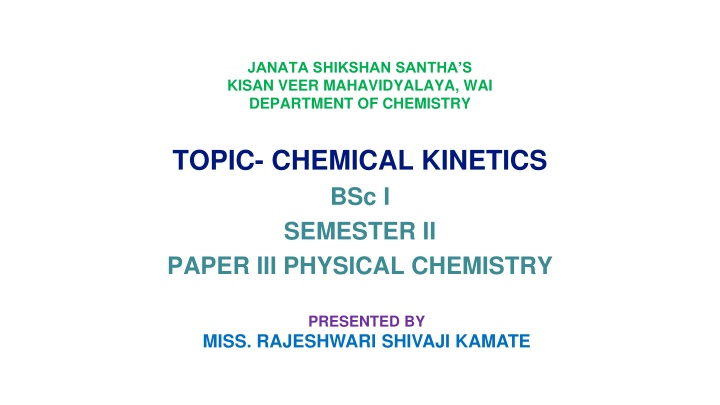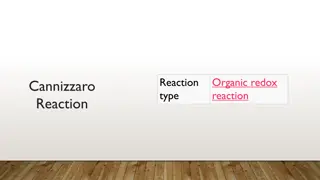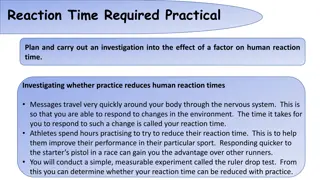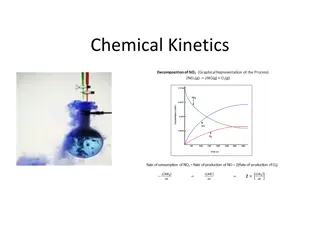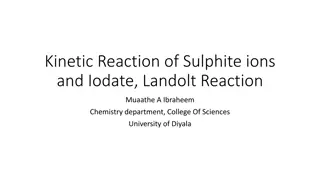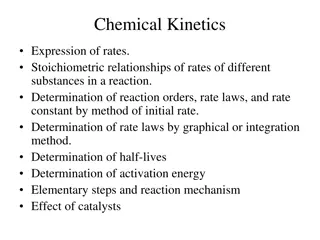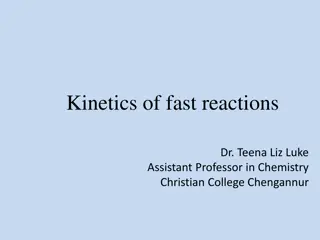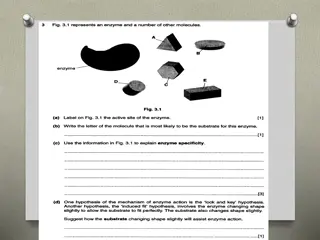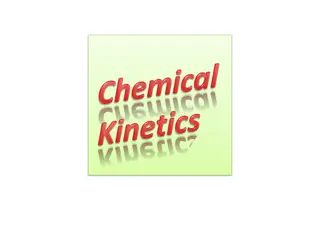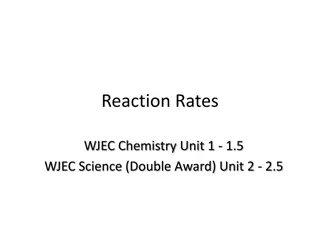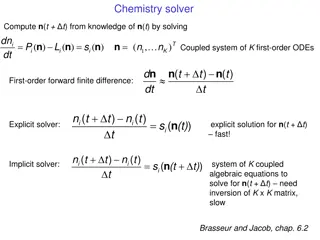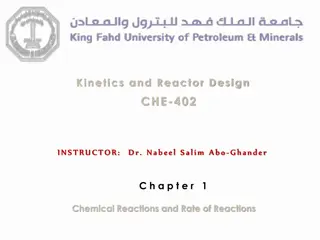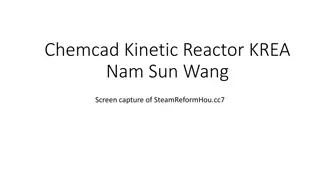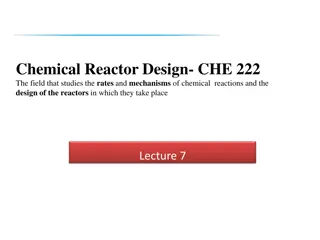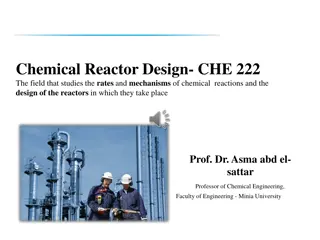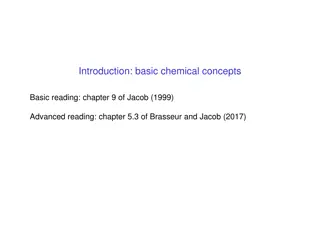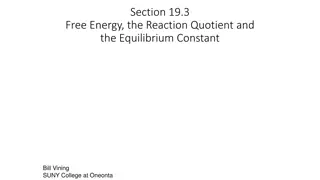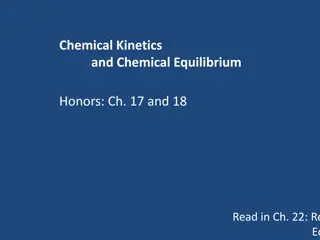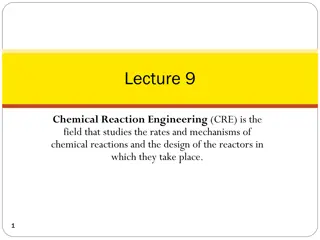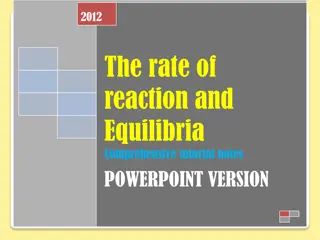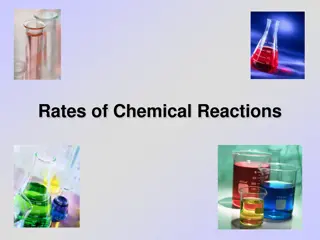Chemical Kinetics: Understanding Reaction Rates and Factors
Chemical kinetics is a branch of physical chemistry that explores the velocity and factors influencing chemical reactions. It studies how reactants transform into products, considering conditions like temperature, pressure, and reactant concentrations. Factors affecting reaction rates include the nature of reactants, concentration, pressure, temperature, and presence of catalysts. First-order reactions involve single reactants directly influencing reactions. Theories such as Collision Theory and the Transition State Theory provide insights into reaction rates.
Download Presentation

Please find below an Image/Link to download the presentation.
The content on the website is provided AS IS for your information and personal use only. It may not be sold, licensed, or shared on other websites without obtaining consent from the author.If you encounter any issues during the download, it is possible that the publisher has removed the file from their server.
You are allowed to download the files provided on this website for personal or commercial use, subject to the condition that they are used lawfully. All files are the property of their respective owners.
The content on the website is provided AS IS for your information and personal use only. It may not be sold, licensed, or shared on other websites without obtaining consent from the author.
E N D
Presentation Transcript
JANATA SHIKSHAN SANTHAS KISAN VEER MAHAVIDYALAYA, WAI DEPARTMENT OF CHEMISTRY TOPIC- CHEMICAL KINETICS BSc I SEMESTER II PAPER III PHYSICAL CHEMISTRY PRESENTED BY MISS. RAJESHWARI SHIVAJI KAMATE Chemical Thermodynamics
Introduction Chemical kinetics is the branch of physical chemistry which deals with the study of velocity or rate of chemical reactions. Such studies understand the mechanism through which the reactants are transferred to products. Almost all chemical reactions take place under a set of conditions e.g. temperature, pressure, concentrations of reacting substances, presence of a catalyst etc. An increase in temperature will increase the rate of a chemical reaction. Similar is the effect of increase concentration of reacting substances. However, it is observed that measure the rate of such reactions (e.g. Neutralisation of acid by base, precipitation of silver chloride by adding HCl to AgNO, solution). On the other hand, there are some reactions, which require such a long time that it is impossible to measure their rates.(e.hydolysis of methyl acetate, reaction of O2 and H, in presence of catalyst.)
Factors Affecting Rate of Reaction The main factors affecting the rate of reaction are as given below. 1) Nature of reactants : The rate of a chemical reaction depends on the nature of reacting species. In a chemical reaction, old bonds are broken and new bonds are formed. The strength of these bonds and their environments in the reacting species will influence the rate of chemical reaction. For example, the reaction between N, and H, molecules to form ammonia at room temperature and in absence of a catalyst takes place 0 slowly that the reaction never proceeds to completion even after millions of years. In case of reaction taking place on surface of reactant, the rate of reaction is proportional to the surface area. Larger surface area of solid reactants and catalyst tend to increase the rate of reaction 2) Concentration of reactants : In all simple reactions, the rate of reaction increases with increase in concentration of reacting substances. 3) Pressure 4) Temperature 5) Catalyst
First order reaction In a first order reaction, a single atom or molecule of a reactant undergoes a change and gives the product. In this case, the rate of a reaction is directly proportional to the concentration of the reacting substance. In the case of hydrolysis of methyl acetate, rate of a reaction depends only on the concentration of methyl acetate molecule and hence,it is a first order reaction.
Theory of reaction rate There are two important theories of reaction rates. These are the collision Theory developed by Arrhenius and van t Hoff and the modern transition state theory , also called the activateted complex theory developed by Eyring.Polanyi and Evans in 1935.
